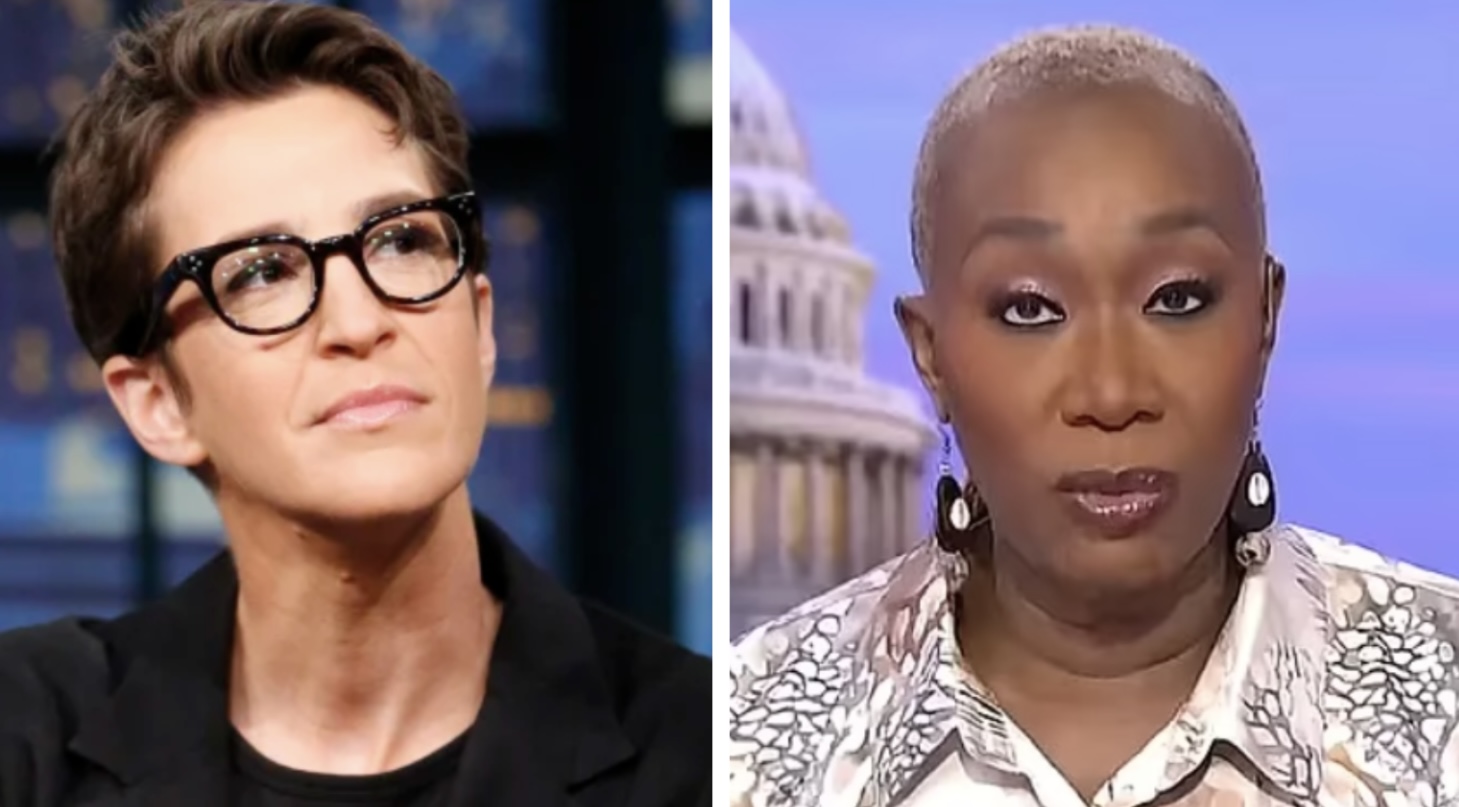MSNBC has let go of its leading host as part of a wider network overhaul aimed at addressing declining viewership
MSNBC has announced a major overhaul, marking a significant shift in the network’s programming strategy under the leadership of Rebecca Kutler, its new president. The biggest change is the cancellation of Joy Reid’s primetime show, The ReidOut, which has been a staple of MSNBC’s evening lineup for the past five years. This move, along with other key programming changes, is part of a broader effort to address declining ratings and to realign the network with the evolving media landscape.
Joy Reid’s departure from the 7 p.m. time slot signals the end of an era. Reid, a prominent liberal voice known for her pointed critiques of former President Donald Trump and her insightful political commentary, built a dedicated following. The ReidOut became a platform for in-depth discussions on race, politics, and social issues, particularly in the wake of the 2016 election. However, despite her show’s strong initial reception, viewership has steadily declined in recent years. Nielsen data revealed that Reid’s audience had dropped by nearly 50% since the 2016 presidential election, with an additional 53% drop in primetime ratings following the November 2020 election. This decline in viewership has prompted MSNBC’s leadership to rethink its strategy.
In place of The ReidOut, MSNBC is introducing a new panel-based show featuring co-hosts Alicia Menendez, Michael Steele, and Symone Sanders Townsend. The network is hoping this fresh format, which brings multiple perspectives and voices together for a more dynamic conversation, will resonate with audiences. By shifting away from a single-host program, MSNBC aims to provide a more diverse, multifaceted approach to political analysis and commentary. This change also reflects the broader trend of networks seeking to diversify their formats in response to a fragmented media environment and a polarized political climate.
The cancellation of The ReidOut is not the only major change in MSNBC’s evening programming. The network is also shaking up its 9 p.m. lineup, with Alex Wagner, a key figure in the network’s evening coverage, transitioning into a contributor role. Wagner’s move signals a shift in the network’s strategy to consolidate resources and streamline programming. Rachel Maddow, who anchors the 9 p.m. slot on Mondays, remains with the network, but her viewership has also been on the decline. Since the November 2020 election, Maddow’s audience has dropped by 43%, with her core demographic of adults aged 25 to 54 shrinking by 56%. This decline in viewership, particularly among a key advertising demographic, has put pressure on the network to find new ways to attract viewers.
MSNBC’s programming shake-up is occurring in a broader context of significant challenges facing cable news networks. With digital media platforms and streaming services increasingly capturing viewers’ attention, traditional cable outlets are struggling to maintain their audience base. These shifts are especially evident among younger viewers, who are more likely to turn to on-demand content and social media for news. This changing landscape has put pressure on cable news networks to innovate and adapt to evolving viewer preferences.
Rebecca Kutler, who joined MSNBC after a long tenure at CNN, has emphasized the need for bold action to keep the network competitive in this new media environment. Since taking over as president, Kutler has focused on reconfiguring MSNBC’s programming lineup and reassigning talent to better meet the demands of today’s media consumers. In internal communications, Kutler acknowledged the challenges facing the network, stating that the media industry is undergoing a transformation and that MSNBC must evolve to stay relevant.
The changes at MSNBC come amid broader economic pressures on cable news networks. Advertising revenue for many traditional networks has been under strain, and ratings declines have made it difficult to justify the high costs associated with maintaining a large team of on-air talent. Reports of pay cuts for prominent MSNBC figures, including Joy Reid and Stephanie Ruhle, highlight the financial pressures faced by the network. As MSNBC tries to balance cost-cutting measures with the need to retain top talent, these decisions have sparked controversy, with some viewers questioning the network’s commitment to quality journalism.
As the network moves forward with its new programming strategy, it faces several critical questions. Will the new panel format be successful in recapturing the lost audience, particularly the coveted 25-to-54 demographic? How will the network continue to evolve its offerings to keep up with changing viewer habits? And what role will former hosts like Alex Wagner and Rachel Maddow play in the network’s future direction?
While it’s still too early to predict the long-term success of these changes, MSNBC’s leadership is clearly committed to reshaping the network’s identity in response to a rapidly changing media landscape. The introduction of new voices and formats is part of a broader effort to reinvigorate MSNBC’s programming and attract a wider range of viewers. As the network continues to evolve, it will be watched closely by both industry insiders and viewers, who will be keen to see if these changes can successfully reposition MSNBC for the future of cable news.
Ultimately, the departure of Joy Reid and the reshuffling of MSNBC’s programming represent the network’s attempt to adapt to the challenges of a changing media environment. While the cancellation of The ReidOut marks the end of a notable era, it also opens the door to new opportunities for innovation and fresh perspectives. As the cable news industry continues to navigate economic pressures and shifting audience expectations, MSNBC’s strategy will serve as a key case study in how traditional networks can evolve to remain competitive in a rapidly changing media ecosystem.
